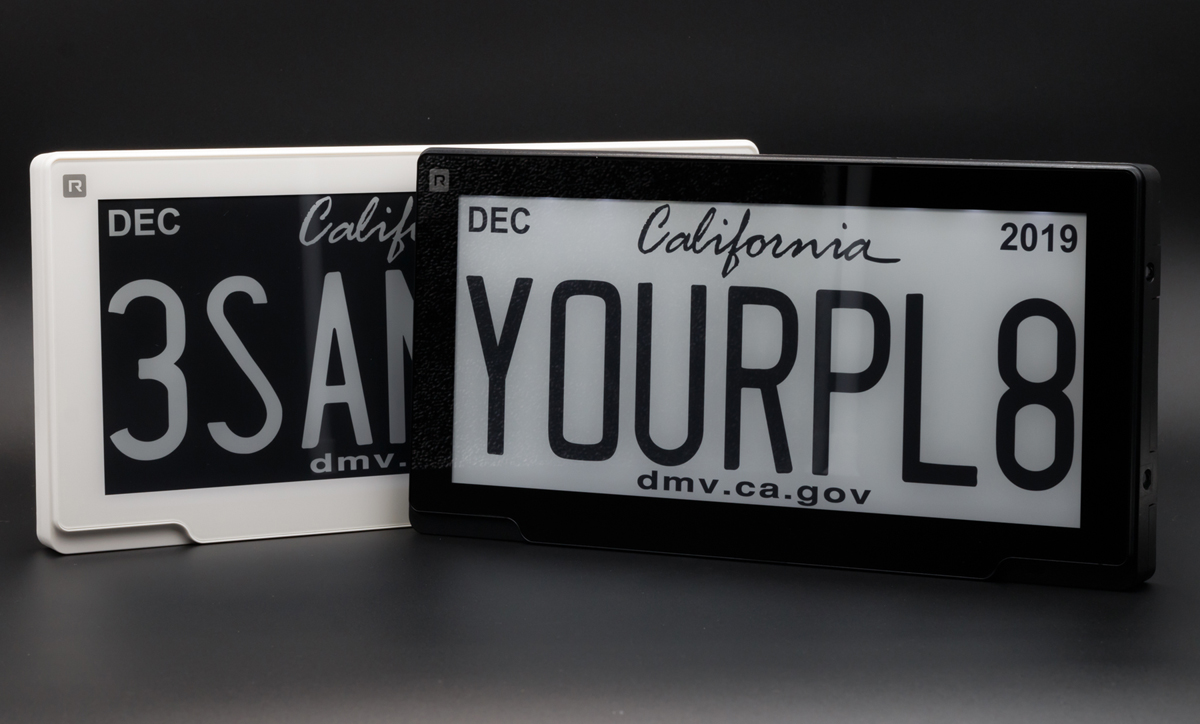Forward-looking: Digital license plates afford a number of benefits over legacy stamped plates but could introduce some unforeseen headaches. Are they durable? Do we really want advertising on our plates? Will they be prone to theft? How about surveillance and tracking? Are the benefits worth the cost?
Michigan has become one of a handful of states to authorize the use of digital license plates, joining California and Arizona in modernizing the 125-year-old practice of stamped metal plates.
The state of Michigan is working with Reviver Auto, creators of the first and only digital license plate, to roll out the plates to interested parties.
Reviver Auto's digital plate, the Rplate, debuted on California roads in mid-2018 and offers a number of benefits over traditional stamped plates. A digital plate can automate the vehicle renewal process, replacing legacy stickers with digital decals and eliminating the need to visit your local tax collector's office or submit a request by mail.
A digital plate can also enable new levels of personalization, potentially allowing drivers to promote charitable causes, passion for a sports team or their child's academic achievements. The Rplate even offers geo-fencing capabilities for business and government entities and can assist with stolen vehicles.
Future features could include Amber and weather alerts as well as marketing capabilities. Advertising on your license plate, I'm sure you're thrilled at that prospect.
A standard Rplate will set you back $499 while a premium version with advanced telematics commands a cool $799. Both begin shipping this spring, we're told.
